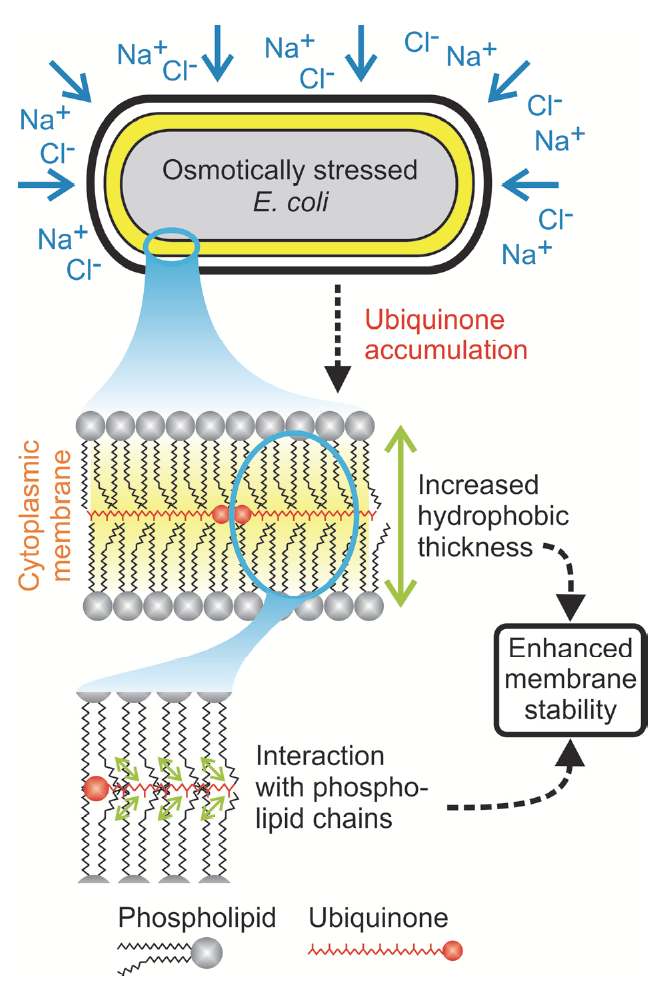Ubiquinone accumulation improves osmotic-stress tolerance in Escherichia coli
Using a novel metabolomics method, the Sauer group discovered a previously unknown mechanism bacteria use to cope with osmotic stress.

Bacteria are thought to cope with fluctuating environmental solute concentrations primarily by adjusting the osmolality of their cytoplasm. To obtain insights into the underlying metabolic adaptations, IMSB researchers in the group of Prof. Uwe Sauer analyzed the global metabolic response of Escherichia coli to sustained hyperosmotic stress using nontargeted mass spectrometry. They observed that 52% of 1,071 detected metabolites, including known osmoprotectants, changed abundance with increasing salt challenge. Unexpectedly, unsupervised data analysis showed a substantial increase of most intermediates in the ubiquinone-8 (Q8) biosynthesis pathway and a 110-fold accumulation of Q8 itself, as confirmed by quantitative lipidomics. The reseachers then demonstrated that Q8 is necessary for acute and sustained osmotic-stress tolerance using Q8 mutants and tolerance rescue through feeding nonrespiratory Q8 analogs. Finally, in vitro experiments with artificial liposomes showed that mechanical membrane stabilization is a principal mechanism of Q8-mediated osmoprotection. Thus, it was found that besides regulating intracellular osmolality, E. coli enhances its cytoplasmic membrane stability to withstand osmotic stress.
References
Sévin DC, Sauer U. Ubiquinone accumulation improves osmotic-stress tolerance in Escherichia coli. Nat Chem Biol. 2014 Feb 9 external pageDOIcall_made
Article in ETH News link
